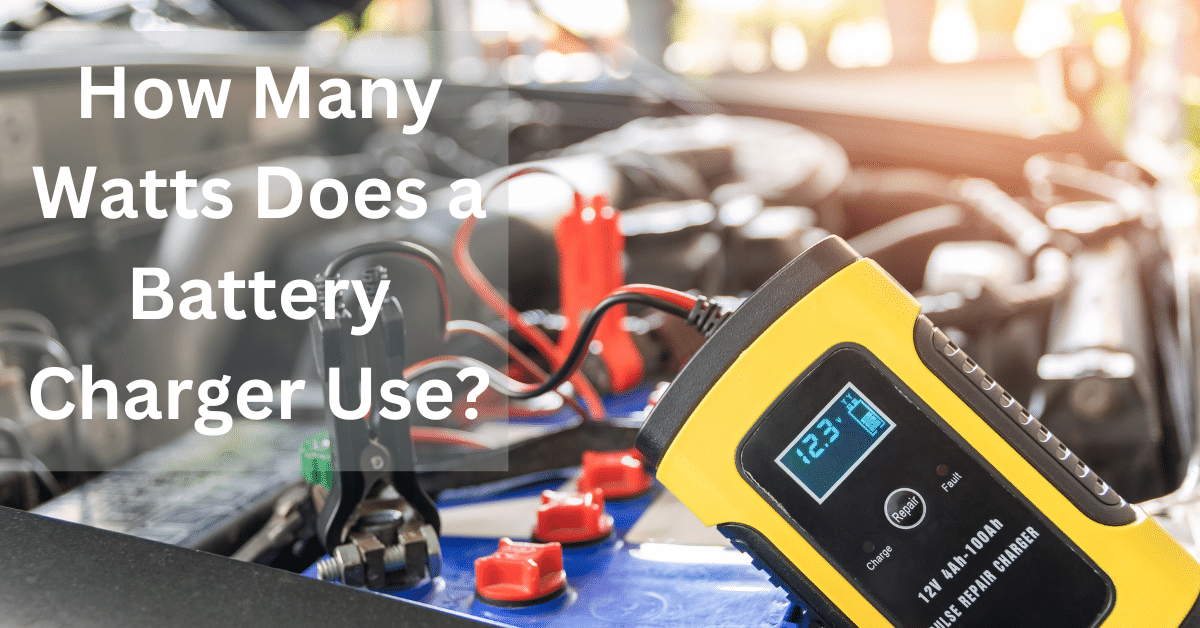The power consumption of a battery charger can vary greatly depending on several factors, including the type of charger, charging speed, and battery capacity.
In general, you can expect these ranges:
Phone Chargers: 5-10 watts
Laptop Chargers: 45-65 watts
Tablet Chargers: 10-20 watts
Car Battery Chargers: 120-240 watts
Solar Battery Chargers: 30-200 watts
Understanding these factors will help you choose the right charger for your needs:
Matching Wattage and Battery Capacity: Choose a charger with a wattage similar to or slightly higher than your battery’s capacity for efficient charging.
Balancing Wattage and Speed: Higher wattage chargers usually offer faster charging, but consider your needs and budget.
Voltage Compatibility: Ensure the charger’s voltage matches your battery’s voltage for safe operation.
Energy Efficiency: Opt for energy-efficient chargers to minimize power consumption and cost.
Remember:
Always check the manufacturer’s recommendations for your specific battery.
Using the wrong charger can damage your battery.
Battery charger amps to watts conversion table:
| Battery Type | Typical Capacity (mAh) | Amp Range (A) | Wattage Range (W) | Notes |
|---|---|---|---|---|
| Smartphone | 2000-5000 | 1-2 | 5-10 | Slow to moderate, ideal for overnight charging |
| Tablet | 5000-10000 | 2-3 | 10-20 | Moderate, balances speed and efficiency |
| Laptop | 40000-80000 | 2-4 | 45-65 | Fast, ideal for on-the-go use |
| Car Battery | 48000-72000 | 4-10 | 120-240 | Very fast, requires dedicated charging setup |
| Power Tool (Lithium-ion) | 2000-5000 | 2-3 | 15-30 | Moderate to fast, depends on tool’s power |
| Power Tool (NiMH) | 1500-3000 | 1-2 | 5-15 | Slower, suitable for smaller tools |
| Portable Projector | 10000-20000 | 2-3 | 15-30 | Moderate, balances portability and power |
| Power Bank | 5000-20000 | 1-2.5 | 5-25 | Varies based on charging output |
| Solar Battery Charger | 10000-20000 | 1-2 | 30-200 | Eco-friendly, output depends on sunlight |
| Electric Vehicle | 60000-100000 | 10-40 | 1000+ | Very fast, requires specialized charging infrastructure |
Taming the Wattage: Choosing the Right Charger:
Battery Capacity Matters: Match your charger’s wattage to your battery’s capacity for a balanced, healthy diet.
Speed Demons vs. Energy Sippers: Crave fast charging? Higher wattage chargers will satisfy your need for speed, but remember, they also consume more power. Opt for energy-efficient chargers for long-term cost savings.
Voltage Buddies: Ensure your charger’s voltage matches your battery’s for a safe and efficient charging experience.
Beyond Wattage: Amps and Voltage, the Battery’s Playmates:
Amps: Think of amps as the speed of the energy flow. Higher amps mean faster charging, but they work hand-in-hand with wattage.
Voltage: Just like your body needs the right voltage for your heart to beat, your battery needs the correct voltage to function properly.
Remember:
Consult your battery’s manufacturer recommendations. Mismatched chargers can damage your precious battery.
Energy efficiency is key. Choose chargers that minimize power consumption without compromising performance.
With this knowledge in your arsenal, you can conquer the wattage beast and choose the perfect charger for your needs, ensuring happy batteries and a healthy wallet. Now go forth and charge wisely!
Tips for choosing the right charger wattage for your battery
Selecting the right charger wattage for your battery is crucial to prevent any damage caused by overcharging or undercharging. Here are some tips to help you choose the right charger wattage:
1. Check your battery’s voltage and capacity to determine the required wattage.
2. Choose a charger with a wattage equal to or slightly higher than your battery’s requirement.
3. For fast charging, opt for a charger with higher wattage but ensure that it is compatible with your battery.
By following these tips, you can ensure efficient charging and prolong the lifespan of your battery.
